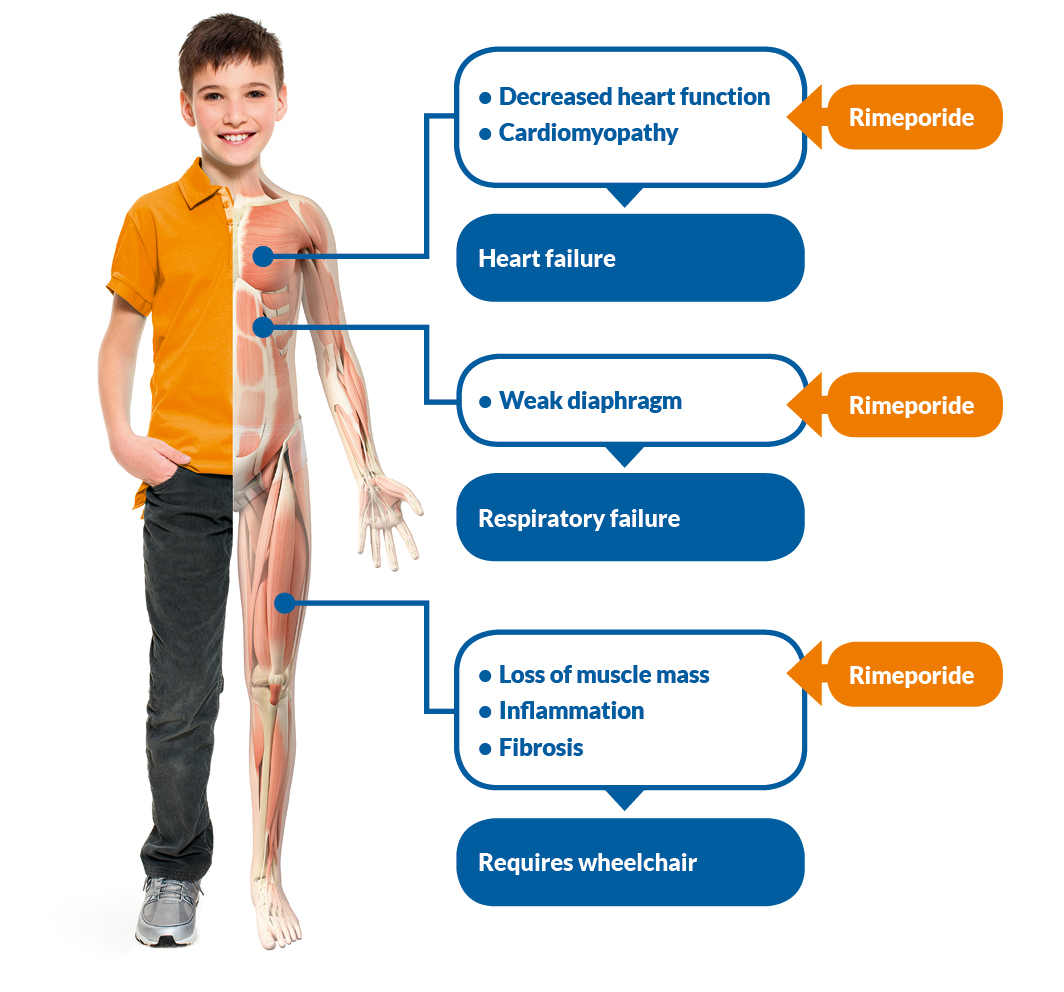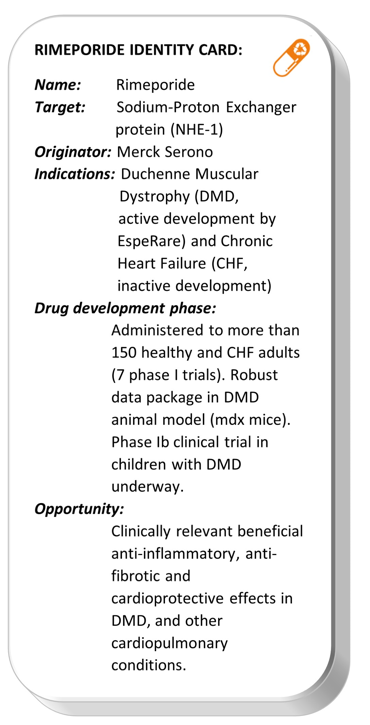Rimeporide in Duchenne Muscular Dystrophy (DMD)
Rimeporide has the potential to be a first in class treatment to address cardiomyopathy in DMD patients
Cardiac disease is the leading cause of death in DMD and Becker Muscular dystrophy. Myocardial fibrosis is a key pathology predicting worsening of heart function and cardiac events. Drugs reducing cardiac fibrosis are urgently needed to supplement the effects of already available treatment (ACE inhibitors and steroids). Rimeporide, working through the inhibition of NHE1, is cardioprotective with reduction of cardiac pathology, including fibrosis.
Advisory Boards compromising leading experts in pediatric cardiology and neurology have stressed the importance of new treatments addressing the direct pathophysiology of DMD to improve DMD patient prognosis and life expectancy.
Rimeporide is also expected to have positive effects on skeletal muscles and the diaphragm. It is also being tested for heart failure related conditions.
Rimeporide has received Orphan Drug Designation in the US and the EU, and was recently granted the Rare Pediatric Disease Designation (RPDD) for cardiomyopathy in children with DMD by the FDA. It is the first drug to receive a RPDD for DMD related cardiomyopathy.
EspeRare is seeking a partner and/or funding to further develop Rimeporide as a major life-changing treatment.
About Duchenne Muscular Dystrophy
Duchenne Muscular Dystrophy (DMD) is a severe and life-threatening genetic paediatric disease that affects 1 in 3,500 boys worldwide.
Patients affected by DMD have progressive loss of muscle function and weakness in their early childhood. This progressive muscle wasting typically leads to loss of ambulation around 10 years of age. It eventually spreads to the arms, neck and other areas. Later in the twenties, this progresses to complete paralysis and increasing difficulty in breathing due to respiratory muscle dysfunction requiring ventilator support as well as cardiac muscle dysfunction leading to heart failure. Cardiac dysfunction is present in most DMD patients and it is the primary cause of premature death.
There is no treatment available that directly halts progression of the cardiac decline in these boys and available treatment mainly aims to manage the symptoms of the disease.

- Duchenne is a heartbreaking disease. Children like Laurent, my cousin, affected with this disease are bright and engaged but as they grow up, they inexorably go weaker and experience the loss of the few abilities they had acquired. I have in my gene the eagerness to find treatments for this disease and I am committed to give them the strength to fight their disease.


